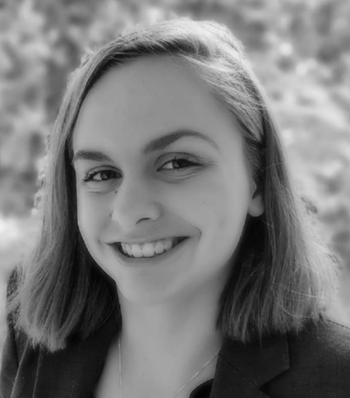'Exciting' new UMD course aims to remove the 'whiteness' from LGBTQ+ studies
New courses will cover topics like 'Transgender Studies,' 'Black Queer Studies,' 'Disability Studies,' and 'Transnational Feminisms.'
Black Queer Studies will 'center Blackness to meditate upon the overlapping and interwoven categories of race, gender, and sexuality with the goal of decoupling whiteness from LGBTQ+ studies and decoupling heterosexuality from Black studies.'
On Apr. 20, the University of Maryland (UMD) announced an “[e]xciting” new selection of LGBT and Women, Gender, and Sexuality Studies (WGSS) courses for the upcoming fall semester.
UMD students have the option to enroll in classes such as LGBT 310: “Transgender Studies,” LGBT 350: “LGBT People and Communications,” LGBT 448L: “Black Queer Studies,” WGSS 105: “Introduction to Disability Studies,” WGSS 263: “Intro to Black Women’s Studies,” WGSS 319P: “Pleasure, Intimacy, and Violence,” and WGSS 488G: “Senior Seminar: Transnational Feminisms.”
These courses are all offered by the Harriet Tubman Department of Women, Gender, and Sexuality Studies. According to its website, the program explores “an interdisciplinary field of inquiry analyzing structures of power, especially as they are grounded in gender, race, sexuality, ethnicity, nationality, ability, and other inequalities, and as they configure historical and contemporary struggles for social change.”
[RELATED: Massachusetts university offers free ‘Trans 101’ course]
In LGBT 310: Transgender Studies, students will “explore the emergence and consolidation of trans identities, practices, cultures, and knowledges across medical, historical, sociological, cultural, and artistic contexts, paying particular attention to dynamics of race, class, and ability, to global and transnational difference, and to the implications of transgender studies for understanding gender and sexuality overall.”
Similarly, LGBT 448L: Black Queer Studies will “center Blackness to meditate upon the overlapping and interwoven categories of race, gender, and sexuality with the goal of decoupling whiteness from LGBTQ+ studies and decoupling heterosexuality from Black studies.” Students will also “consider how Black queer liberation can, and has, provided tools and a guide for our collective liberation.”
Those enrolled in WGSS 105: Introduction to Disability Studies will gain a better understanding about “theories of disability justice as they intersect with feminist and antiracist struggles.” They will also learn about “how disability activists have responded to ableism by developing art, political strategies, and subcultures that promote a more just society for a wider variety of human bodies.”
The goal of WGSS 319P: Pleasure, Intimacy, and Violence is for students to “learn to speak of and imagine sex in an environment that values non-violence and respect for all bodies and genders.”
A warning for the course reads: “Please note that this course includes practicing respectful and open discussion of sex, sexual practices and sexual histories in candid and explicit ways, which includes topics like rape and sexual assault, masturbation, fantasy, teen sex, and nonhuman sex.”
For advanced students who can gain entry into WGSS 488G: Senior Seminar: Transnational Feminisms, they will “engage with contemporary feminist debates on racism, casteism, right wing moral panics around sexual and gender identities and settler colonialism to de-exceptionalize the US as the center of feminist knowledge production.”
According to EduRank, UMD offers the 31st best Gender Studies program in the world.
Campus Reform has reached out to all individuals and entities mentioned for comment and will update this story accordingly.

